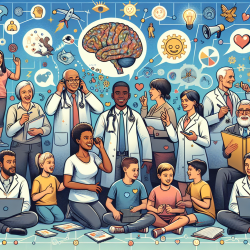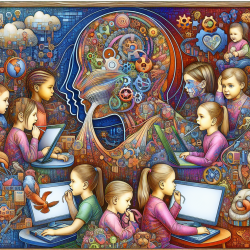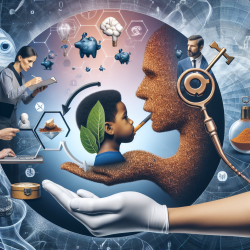Introduction: The Power of Data in Speech Therapy
In today's digital age, the integration of data science into various fields has revolutionized the way we approach problem-solving. Speech therapy, particularly for children, is no exception. The recent research article, "Teaching Responsible Data Science: Charting New Pedagogical Territory," provides invaluable insights into how responsible data science can enhance educational outcomes, including in speech therapy.
Understanding Responsible Data Science
Responsible Data Science (RDS) is a burgeoning field that focuses on the ethical and transparent use of data in technology and AI. The research highlights the importance of interpretability, fairness, and privacy in data science, which are crucial when designing systems that affect children's learning and development.
Implementing RDS in Speech Therapy
For practitioners in speech therapy, integrating RDS can lead to more personalized and effective interventions. Here's how:
- Interpretability: Understanding the algorithms behind speech therapy tools ensures that therapists can trust and explain the outcomes to parents and educators.
- Fairness: Ensuring that AI-driven tools do not have biases that could affect the quality of therapy provided to children from diverse backgrounds.
- Privacy: Protecting the sensitive data of children is paramount. RDS provides frameworks for maintaining confidentiality while using data to improve therapy outcomes.
Pedagogical Best Practices
The research suggests using "objects-to-interpret-with," such as nutritional labels for data, to help students and practitioners understand complex models. This approach can be adapted in speech therapy to help therapists better interpret data from therapy sessions and adjust strategies accordingly.
Encouraging Further Research
While the current research provides a solid foundation, there is a need for ongoing exploration into how RDS can be tailored specifically for speech therapy. Practitioners are encouraged to engage with the latest data science research and consider how these insights can be applied to their practice.
Conclusion: A Call to Action
The integration of responsible data science into speech therapy has the potential to transform the field, leading to better outcomes for children. By embracing these principles, practitioners can ensure that their interventions are not only effective but also ethical and equitable.
To read the original research paper, please follow this link: Teaching Responsible Data Science: Charting New Pedagogical Territory.










